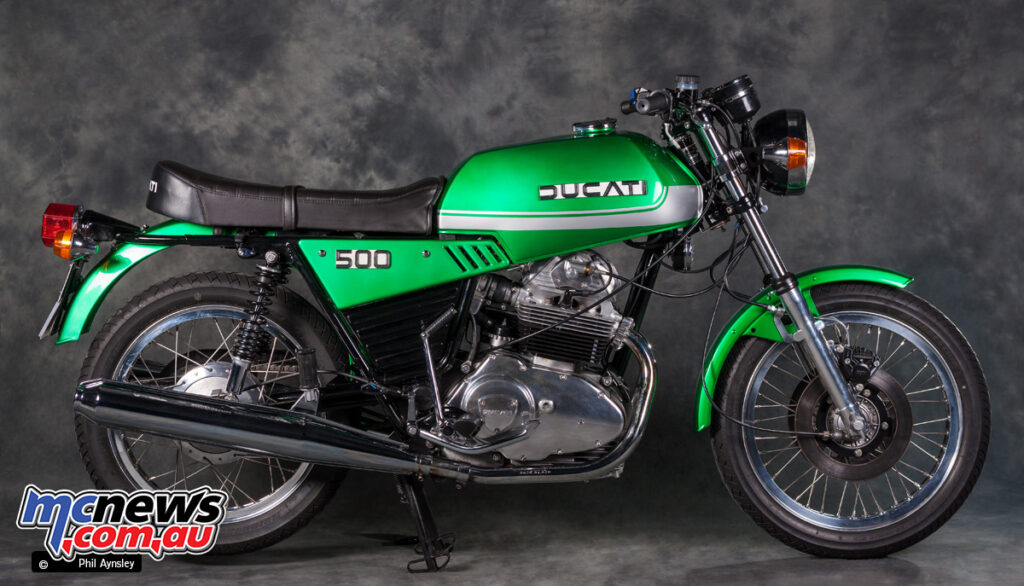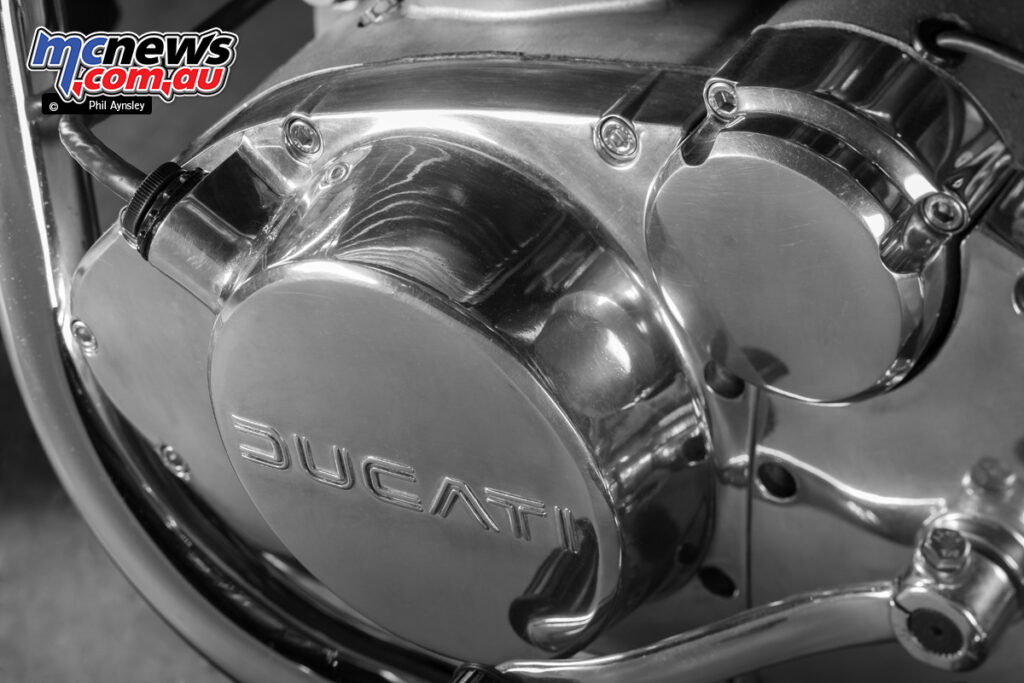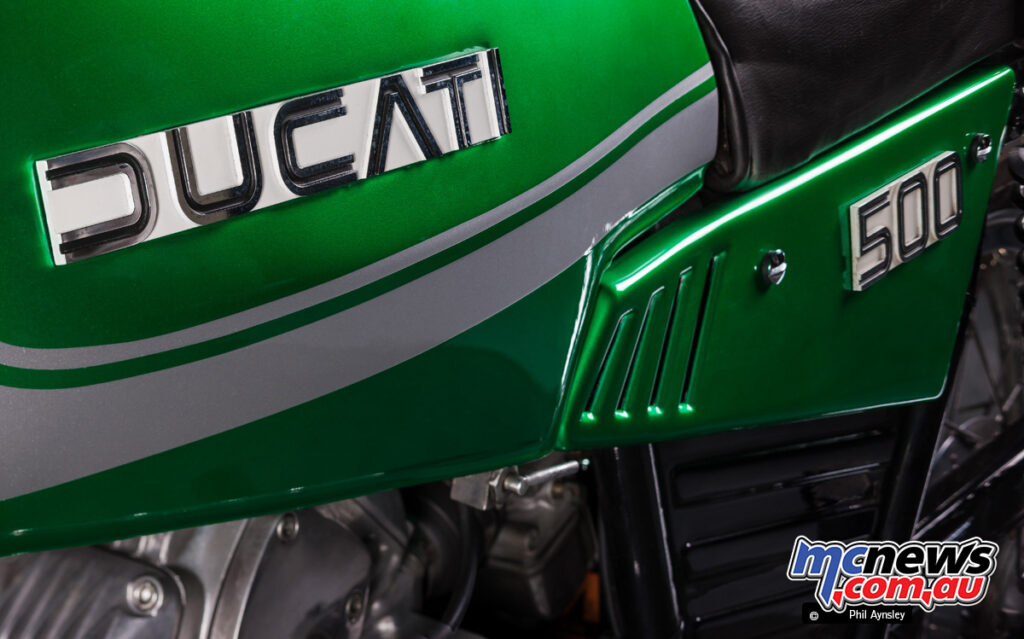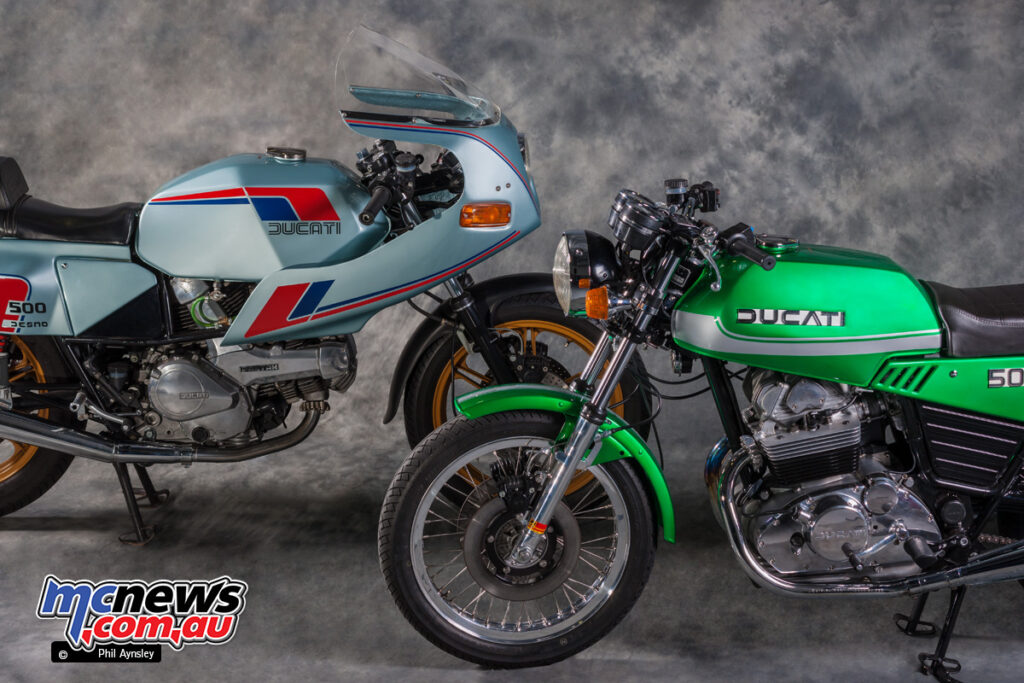Ducati’s 500GTL parallel twin
With Phil Aynsley
The oil crisis of 1973 convinced Ducati’s management of the time that a new, cheaper range of models were required and they decided that these bikes needed to be parallel twins.

This was despite Ducati’s great record of achievements from their single-cylinder motorcycles followed by Fabio Taglioni’s success with his 750 V-twins and the work he had already completed on what was to become the Pantah.
Taglioni would have nothing to do with the development of the parallel twins which saw Ing. Tumidei overseeing the design which stressed reduced manufacturing costs as a primary goal.
While Ducati had shown prototypes of two different 500 parallel twins in 1964 and 1968 the new design had nothing in common with them. Originally conceived with a 360º crankshaft, this was soon changed to a less 180º crank for less vibration.

However the massive crankcases, built to house large counter-balancers were retained. Chain-driven valve-spring SOHC heads were used for the GTL models with both 350 and 500 cc versions being debuted in 1975. Almost an afterthought, the Sport Desmo versions weren’t available until almost two years later.
The GTLs shared the same basic Giugiaro styling as the 860GT and were just as unloved!
In addition to the styling the bikes suffered from poor reliability – the main problem being the oil feed to the camshaft. They also suffered from very modest performance, especially the 350.
The bikes handling however was very good.

Only 1,105 500s and 930 350s were built before they were replaced by the GTV in 1977. This employed the successful (Tartarini) styling of the Sport Desmo and the Darmah but retained the valve-spring heads of the GTL. The oil feed problems were largely remedied in these later motors.
Given Australia was Ducati’s largest export market during the ‘70s we received quite a few parallel twins – 208 GTLs, 36 GTVs and 224 Sport Desmos. Very few are still on the road. This particular 500 GTL was restored by SCR Ducati in Morisset and has since covered over a thousand kilometres.

The 500GTL made 35 hp at 6,500 rpm and had a dry weight of 170 kg, while top speed was 170 km/h.



































